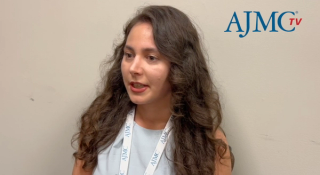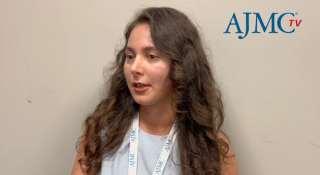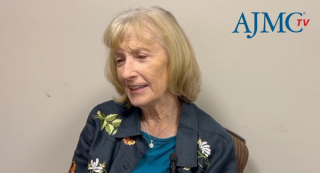
Breast Cancer
Latest News

Latest Videos

CME Content
More News

Aditya Bardia, MD, MPH, FASCO, medical oncologist, UCLA Health, discusses findings from the TROPION-Breast01 study on datapotamab deruxtecan for patients with HR-positive/HER2-negative breast cancer.

A follow-up of the ShortHER trial suggests tumor-infiltrating lymphocytes (TILs) can help identify patients who may benefit from shorter trastuzumab and chemotherapy regimens.

Significant increases in breast cancer incidence were found among Hispanic, American Indian or Alaska Native, and Asian or Pacific Islander women.

Breast cancer screening rates shifted after the 2009 US Preventive Services Task Force (USPSTF) guidelines, with disparities emerging across race, income, and lifestyle factors.

Sarah Anderson, oncology strategy lead director, Novotech, discusses the significance of triple-negative breast cancer research in the Asia-Pacific region, and the importance of clinical trial diversity in this region.

Roche’s PATHWAY HER2 (4B5) test helps identify patients with HER2-ultralow breast cancer, who may be eligible for targeted therapy.
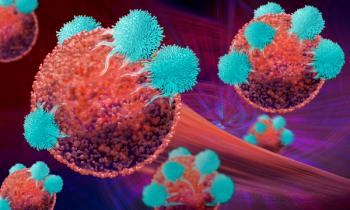
Atezolizumab (Tecentriq) plus chemotherapy after surgery did not improve survival in high-risk triple-negative breast cancer, according to a global phase 3 trial.

The approval is based on findings from a phase 3 study which demonstrated the drug’s superiority over chemotherapy.

Sarah Anderson, oncology strategy lead director, Novotech, discusses the growing prominence of triple-negative breast cancer clinical trials in the Asia-Pacific region, and the significant investments being made with novel biomarkers.

The approval is based on findings from the phase 3, multicenter, open-label, randomized TROPION-Breast01 trial.

Dawn Klemow, MD, assistant clinical professor, University of Texas Southwestern Medical Center, previews some of the most recent advances in breast cancer treatment.

The Breast Cancer Index (BCI) may help identify patients with low-risk breast cancer who could potentially benefit from reduced endocrine therapy, leading to improved quality of life and potentially lower health care costs.

A new analysis of the Breast Cancer Index (BCI) may help identify women with HR-positive breast cancer who could potentially benefit from shorter or less-intensive treatment.
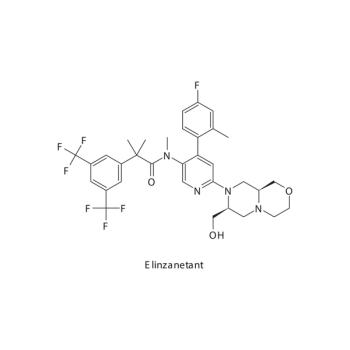
Trial confirms elinzanetant's efficacy and safety in addressing vasomotor symptoms caused by adjuvant endocrine therapy in patients with hormone receptor–positive breast cancer.

Self-efficacy–based sexual counseling may improve sexual function among breast cancer survivors, study finds.

Alcohol was first identified as a carcinogen almost 40 years ago, by the World Health Organization's International Agency for Research on Cancer.

Mikael Eriksson, PhD, epidemiologist at Karolinska Institute in Sweden, discusses the development and implementation of an artificial intelligence (AI) model to reduce bias and improve breast cancer prevention.

Roberto Salgado, MD, anatomic pathologist for breast cancer translational research at Institut Jules Bordet, examines the significance of tumor-infiltrating lymphocytes (TILs) in various breast cancer types and emphasizes the need for standardized TIL evaluation methods to improve patient outcomes.

The most-read breast cancer articles include topics on hereditary breast cancer, hormone therapy benefits, BRCA mutations, as well as treatment outcomes.

Breast cancer outcomes are significantly impacted by race and immune responses, particularly among Black patients with triple-negative subtypes, emphasizing the need to understand these disparities and develop more effective treatment strategies.

Patients with ER-positive/HER2-negative metastatic breast cancer who received elacestrant experienced a significant reduction in disease progression or death compared with standard-of-care endocrine therapy.

Komal Jhaveri, MD, FACP, breast oncologist and early drug development specialist at Memorial Sloan Kettering Cancer Center, presents findings from the EMBER-3 trial evaluating imlunestrant for patients with advanced breast cancer.

Elacestrant, a selective estrogen receptor degrader, demonstrated significant improvements in progression-free survival (PFS) compared with standard-of-care treatments for patients with ER-positive, HER2-negative, ESR1-mutated metastatic breast cancer.

Younger women with estrogen receptor (ER)–positive, HER2-negative breast cancer have significantly worse long-term outcomes, including higher rates of recurrence and metastasis, compared with older women.
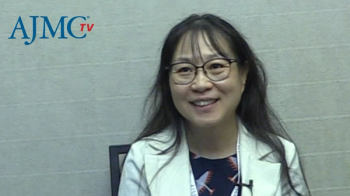
Mei Wei, MD, an oncologist specializing in breast cancer at Huntsman Cancer Institute at the University of Utah, discusses the latest advancements in HR+/HER2– breast cancer research, as well as the increasing role of genomic profiling in tailoring treatment plans.








